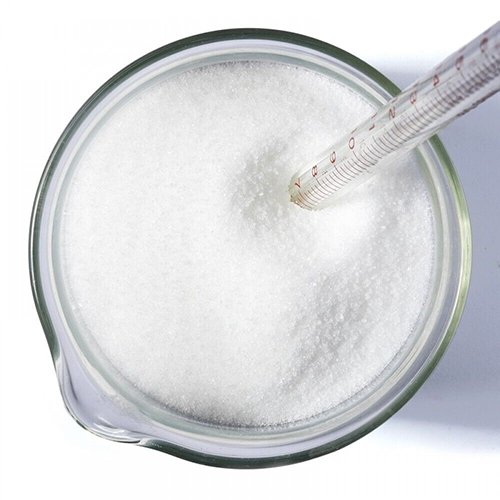Table of Contents
ToggleIn the realm of food additives and pharmaceuticals, trisodium citrate dihydrate plays a significant role. Whether you’ve encountered it in your favorite beverage or as an ingredient listed on a medication label, this compound is known for its versatility and wide range of applications. In this blog post, we will explore what trisodium citrate dihydrate is, its uses, and its safety considerations.
What is Trisodium Citrate Dihydrate?
Trisodium citrate dihydrate, also known as sodium citrate, is a white crystalline powder with the chemical formula Na₃C₆H₅O₇·2H₂O. It is derived from citric acid, a naturally occurring organic acid found in various citrus fruits. Trisodium citrate dihydrate is the sodium salt of citric acid and has a slightly salty and acidic taste.

The Safety of Trisodium Citrate Dihydrate:
Trisodium citrate dihydrate is generally recognized as safe (GRAS) by regulatory authorities such as the U.S. Food and Drug Administration (FDA) and the European Food Safety Authority (EFSA). It has a long history of use in food and pharmaceutical industries and is considered safe for consumption in appropriate quantities.
As with any food additive, it is essential to use trisodium citrate dihydrate in accordance with recommended guidelines. Excessive consumption may lead to potential side effects such as gastrointestinal discomfort or allergic reactions in rare cases. It is always advisable to consult a healthcare professional if you have specific concerns or pre-existing health conditions.
Applications of Trisodium Citrate Dihydrate:
Trisodium citrate dihydrate finds numerous applications across various industries. Here are some common uses:
a. Food and Beverage Industry:
Trisodium citrate dihydrate is widely used as a food additive for its multifunctional properties. It acts as an acidity regulator, antioxidant, emulsifier, and preservative. It helps control the pH balance, enhance flavors, and prevent the formation of undesirable precipitates in soft drinks, jams, jellies, ice creams, and processed cheeses. Additionally, it serves as a buffering agent in powdered mixes and is often used as an ingredient in carbonated beverages.

b. Pharmaceutical Industry:
In the pharmaceutical field, trisodium citrate dihydrate serves as an excipient, which is an inactive substance added to medications. It is utilized as a buffering agent and pH adjuster in various oral solutions, effervescent tablets, and liquid medications. Additionally, it can enhance the stability and solubility of certain drugs, contributing to their efficacy and ease of administration.

c. Industrial Applications:
Beyond the food and pharmaceutical industries, trisodium citrate dihydrate finds utility in other sectors. It is employed in water treatment processes to reduce water hardness by chelating calcium ions. Furthermore, it acts as a dispersing agent and corrosion inhibitor in metal cleaning solutions and serves as a catalyst in certain chemical reactions.

Conclusion:
Trisodium citrate dihydrate, with its wide range of applications, is a versatile compound used in the food, pharmaceutical, and industrial sectors. As a GRAS-approved substance, it is considered safe for consumption within recommended limits. Whether it’s improving the taste and stability of foods, enhancing the effectiveness of medications, or contributing to industrial processes, trisodium citrate dihydrate continues to play a vital role in our daily lives.
Disclaimer: The information provided in this blog post is for educational purposes only and should not be considered as professional advice. It is always recommended to consult relevant authorities or experts for specific concerns regarding the use or consumption of trisodium citrate dihydrate.


